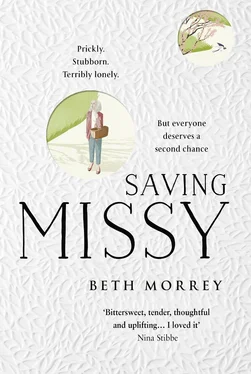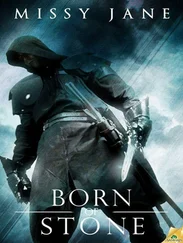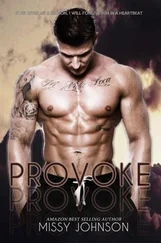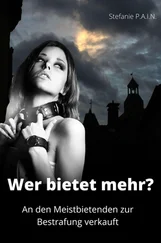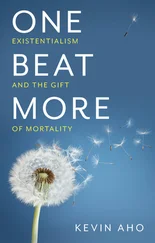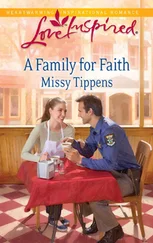But what did I want to do? I wasn’t sure, walking down King’s Parade that evening in August, clutching a pile of books to my chest and mulling it over. Then I saw Leo Carmichael walking towards me, his golden hair fiery in the sun, and remembered he was all I ever wanted. For a second, the flood of memories nearly floored me and I swayed, dizzy with it. Whispering to my mother in the drawing room; the cold and bright light; prone in bed, staring at the ceiling, ignoring the stale sandwiches. He could not know, he could never know, how much this meant. I hugged the books tighter, preparing to look unconcerned and uninterested. As he approached, for a second I thought he didn’t recognize me, but then his face cleared and he smiled with what looked like genuine pleasure.
‘Milly!’ he said, grabbing my hand and pumping it enthusiastically. Of course I dropped my books, and we spent the next minute scrabbling round for them on the pavement. By the time they were back in my arms, my hair was mussed and I was breathless with effort and embarrassment.
‘Would you like a drink?’ he asked, indicating towards the river.
I shouldn’t appear too keen – let him think I have other engagements, interesting parties and interested parties.
‘Yes, please.’
He took my books and we walked together towards The Anchor, a favourite haunt among students. As we approached the River Cam, I was painfully, ecstatically, aware of everything in that moment – the little toe-pinch in my right shoe, the bead of sweat on the back of my neck, my books tucked under that big arm of his as he strolled along, my still-uneven breathing. I looked towards Queens’ at the punters carefully wielding their poles under the Mathematical Bridge. There was a myth that it was designed by Sir Isaac Newton, and originally built without any kind of connection at the joints. The story went that a group of students took the bridge apart, and were unable to put it together again, thus it had to be re-built with the current nuts and bolts. It wasn’t true, of course, but I liked the idea anyway. I needed to build mine and Leo’s relationship with a few nuts and bolts to make it secure. And above all, he must never know just how much water was under that bridge.
That summer, with a supreme effort of self-control, I channelled my natural repression and presented myself as elusive, chaste, to be chased. When we went for a drink, I left early, telling him there was a rumour some students had towed a Spitfire into Trinity Great Court. When he invited me to see A Tale of Two Cities at the cinema, I told him I didn’t admire Dirk Bogarde. When he asked me to attend a Leavis lecture with him, I went, but made sure to bump into several acquaintances en route that I absolutely had to speak to. I kept him waiting.
Why was all that obfuscation so necessary? I felt instinctively that Leo, so straightforward himself, did not admire that quality in others. He liked guile, caprice, uncertainty. He liked a slippery fish. So that’s what I was. Just before Christmas, he proposed, leaving a ring in my copy of the Odyssey , with a little note about my face launching a thousand ships, though I always felt less Helen, more Trojan horse. He lounged in the doorway watching me open the book, with a lopsided grin and a bottle of champagne. ‘How about it?’ he said, proffering the bottle, while I worked hard not to cry. We were married on a dry, chilly day in January – I was already pregnant in the photo Tristan took of us outside King’s College Chapel, although I didn’t know it. Alea iacta est.
And the problem with all of this? The flaw in my plan? Having got the ring on my finger, the baby in my belly and the little house on Jesus Green … when was I finally going to be able to relax, take out the bolts and see if it would hold?
Never. Having held him fast, I couldn’t let go; I had to hang on.
Chapter 13 Chapter 13 Chapter 14 Chapter 15 Chapter 16 Chapter 17 Chapter 18 Chapter 19 Chapter 20 Chapter 21 Chapter 22 PART 3 Chapter 23 Chapter 24 Chapter 25 Chapter 26 Chapter 27 Chapter 28 Chapter 29 Chapter 30 Chapter 31 Chapter 32 PART 4 Chapter 33 Chapter 34 Chapter 35 Chapter 36 Chapter 37 Chapter 38 Chapter 39 Chapter 40 Chapter 41 Chapter 42 Chapter 43 Chapter 44 Chapter 45 Chapter 46 Chapter 47 Chapter 48 Chapter 49 Acknowledgements About the Author About the Publisher
Walking Bob to the park the next morning, I felt awkward and self-conscious, as though I were an imposter. The dog seemed incongruous, trotting at my heels, and I worried that passers-by might see us and think I’d stolen her, or simply that we looked ridiculous together, like a goaty old man and his nubile girlfriend.
She was such a buoyant, unaffected presence, grinning up at me, constantly weaving off to sniff lampposts, urinate on leaves, or scratch herself at inconvenient moments. People are supposed to look like their dogs, and I imagined a dog of mine would be some sort of wolfhound – tall, grey and diffident. Not this perky, prancing thing, with her autumnal colours and sideways wink. She was the kind of dog Alicia Stewart would have had. Alicia, Leo’s sparkling, vivacious first love, who capered through life expecting everyone to make way for her.
Nevertheless, we made it to the park and dutifully began a circuit, remembering Angela’s lecture on the importance of exercise. The air was warmer now, with daffodils forcing their way through the cold dried mud of early spring. Looking up, I could see the delicate eruption of blossom – a brief but beautiful stage of the season. In Japan, the sakura – the cherry blossom – represents the transience of life, and they have festivals dedicated to watching it bloom; the bud is fragile and short-lived and thus one must come to terms with the inevitability of one’s death. How odd, though, to sit under a tree and actively contemplate one’s own demise.
My ruminations were interrupted by Bob, whining and pulling at her lead, dragging me in different directions. As we made our jagged progress around the park, we encountered another dog walker heading in the opposite direction. I didn’t like the look of him or his dogs, so discreetly gave them a wide berth. They were boxers; not a breed I’ve ever admired (if indeed I’ve admired any), and their owner looked something of a pugilist himself – shaven-headed, with a bulbous nose, army jacket collar pulled up around his face, cigarette smoke in a cloud around him. But of course, Bob, in her contrary way, developed an unaccountable fancy for his dogs, tugging me over and cavorting, rolling over on her back in supplication. I pulled on her lead irritably, ‘Come on!’
‘She wants off.’
‘I’m sorry?’ I couldn’t see his mouth move for collar and cigarette. Typical, on my first dog-walking day, to encounter some thuggish stranger and be drawn into conversation.
‘She wants off. The lead.’ He took the cigarette out of his mouth with black-nail-tipped sausage fingers, and pointed it at Bob. ‘She wants to play.’ He had a thick accent – Newcastle, or somewhere up there.
I looked at Bob, still capering and yapping. ‘She might run away.’
‘She won’t,’ he put the cigarette back in. ‘And if she does, she’ll come back.’
Reluctantly, I unhooked Bob’s lead, whereupon she immediately went into an orgy of romping with the boxers. There was much baring of teeth, but they all seemed to be enjoying themselves, and at least she was getting some exercise.
Enjoying the spectacle, my companion sucked away on his cigarette, then turned to me.
‘What’s her name?’
‘Er, Bob,’ I replied. It seemed we were expected to make polite small talk, in a tame mimicry of our dogs’ interaction. ‘Yours?’
Читать дальше
